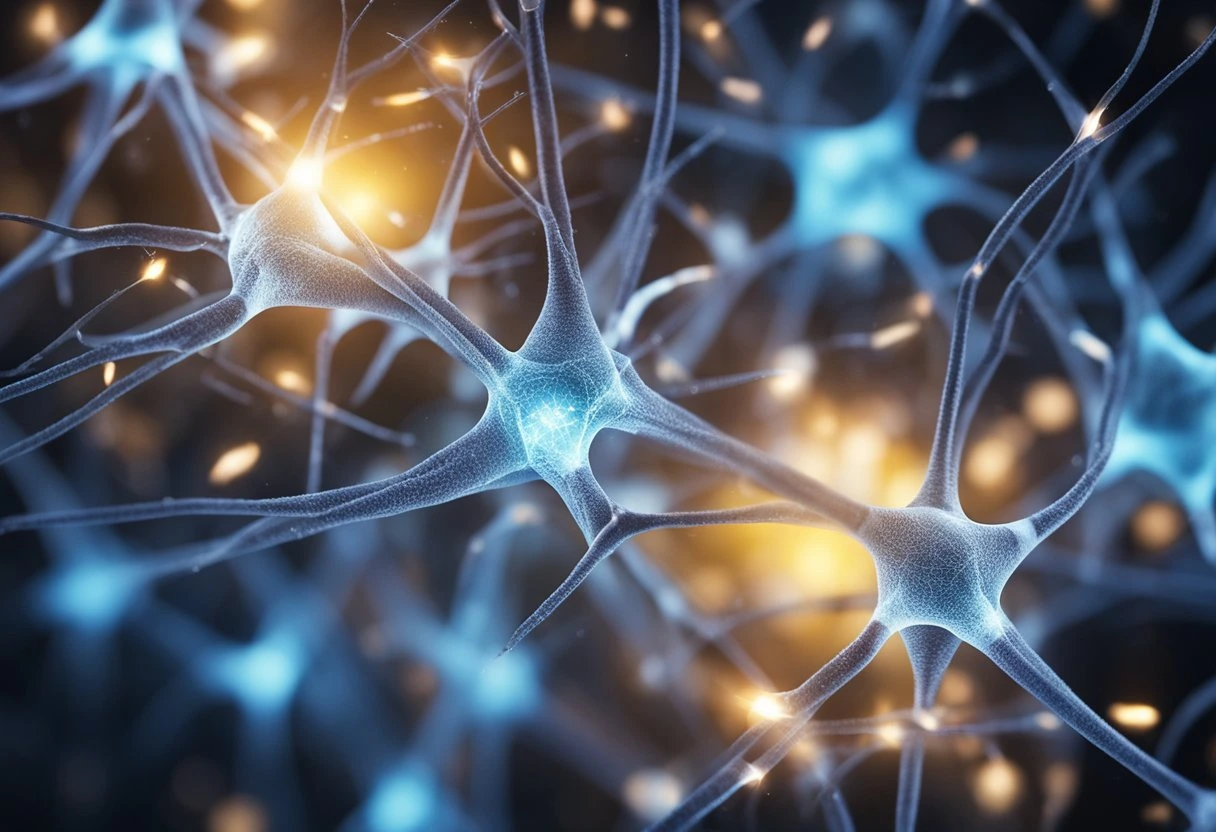When it comes to music, Beyoncé is a name that needs no introduction. Her songs have been a source of inspiration and empowerment for many people all over the world. In her latest release, “All Up In Your Mind,” she delivers a powerful message about the importance of self-love and acceptance. The lyrics are a reminder that we should never let our inner demons take control of our lives and that we should always be true to ourselves.
“All Up In Your Mind” is a song that speaks directly to the heart. It is a powerful anthem that encourages us to be our best selves and to never give up on our dreams. The lyrics are a testament to the fact that we are all capable of achieving greatness, no matter what obstacles we may face. Whether we are struggling with self-doubt, anxiety, or any other challenge, this song reminds us that we have the strength and resilience to overcome anything that comes our way.
At its core, “All Up In Your Mind” is a song about self-love and acceptance. It encourages us to embrace our true selves and to never let anyone else define us. With its powerful message and catchy beat, this song is sure to become an instant classic. So, turn up the volume and let Beyoncé’s powerful voice inspire you to be the best version of yourself.
Understanding Your Mind: Mechanism and Functions
When it comes to our daily lives, our minds are all up in it. Our thoughts, emotions, and behaviors are all controlled by the complex organ that is our brain. But how exactly does it work? In this section, we’ll explore the mechanism and functions of the mind, including the conscious and unconscious mind and cognitive processes.
The Conscious and Unconscious Mind
The mind can be divided into two parts: the conscious and unconscious mind. The conscious mind is the part of our mind that we are aware of and can control. It’s responsible for our thoughts, feelings, and actions that we actively choose. On the other hand, the unconscious mind is the part of our mind that we are not aware of and cannot control. It’s responsible for our automatic processes, such as breathing and heartbeat, and it stores our memories, emotions, and beliefs.
The conscious and unconscious mind work together to create our overall perception of the world. While the conscious mind is responsible for our logical and rational thinking, the unconscious mind is responsible for our emotions and intuition. By understanding the interaction between the two, we can gain a better understanding of ourselves and our behavior.
Cognitive Processes: All up in your mind
Cognitive processes are the mental processes that allow us to think, perceive, and remember. They include attention, perception, memory, language, and problem-solving. These processes are essential for our daily functioning and allow us to interact with the world around us.
Attention is the ability to focus on one thing while ignoring distractions. Perception is the process of interpreting sensory information from our environment. Memory is the ability to store and retrieve information. Language is the ability to communicate using words and symbols. Problem-solving is the ability to find solutions to complex problems.
By understanding these cognitive processes, we can improve our ability to learn, communicate, and solve problems. We can also develop strategies to improve our attention, memory, and problem-solving skills.
In conclusion, the mind is a complex organ that controls our thoughts, emotions, and behaviors. By understanding the mechanism and functions of the mind, including the conscious and unconscious mind and cognitive processes, we can gain a better understanding of ourselves and our behavior.
Influence of Thoughts for The Mind
Our thoughts have a powerful influence on our mental health and wellbeing. The way we think can affect the way we feel and behave. In this section, we will explore the power of positive thinking and the effects of negative thoughts.
Power of Positive Thinking
Positive thinking can have a significant impact on our mental health. When we think positively, we tend to feel happier, more confident, and optimistic about the future. Positive thinking can also help us cope with stress and difficult situations.
One way to cultivate positive thinking is to practice gratitude. By focusing on the things we are thankful for, we can shift our mindset to a more positive outlook. We can also challenge negative thoughts by questioning their validity and replacing them with positive affirmations.
Effects of Negative Thoughts
Negative thoughts can have a detrimental effect on our mental health. When we think negatively, we tend to feel anxious, stressed, and depressed. Negative thoughts can also lead to self-doubt and low self-esteem.
One way to combat negative thoughts is to practice mindfulness. By being present in the moment and observing our thoughts without judgment, we can become more aware of our negative thought patterns. We can also challenge negative thoughts by questioning their validity and replacing them with positive affirmations.
Emotional Intelligence
Emotional intelligence (EI) is the ability to recognize and regulate emotions in oneself and others. It is an important part of our mental and emotional well-being. Emotional intelligence can help us understand our own emotions, communicate effectively, and build healthy relationships with others. In this section, we will discuss the importance of emotional intelligence and how we can develop it.
Understanding Emotions
The first step in developing emotional intelligence is understanding emotions. Emotions are complex and can be difficult to identify and understand. Emotional intelligence involves being aware of our emotions and understanding what they mean. This includes recognizing the physical sensations that accompany emotions, such as changes in heart rate or breathing.
One way to improve our understanding of emotions is to practice mindfulness. Mindfulness is the practice of paying attention to the present moment without judgment. By practicing mindfulness, we can become more aware of our emotions and how they affect us.
Managing Emotions
Managing emotions is the second component of emotional intelligence. This involves regulating our emotions in a healthy way. It is important to remember that emotions are a natural part of life, and it is okay to experience a range of emotions.
One way to manage emotions is through relaxation techniques, such as deep breathing or meditation. These techniques can help us calm our minds and bodies when we are feeling overwhelmed or stressed.
Another important aspect of managing emotions is developing healthy coping mechanisms. Coping mechanisms are strategies we use to deal with difficult situations or emotions. Examples of healthy coping mechanisms include talking to a friend, exercising, or practicing a hobby.
In conclusion, emotional intelligence is an important part of our mental and emotional well-being. By understanding and managing our emotions, we can improve our communication skills, build healthy relationships, and lead happier lives.
Mindfulness and Meditation
When it comes to managing stress and anxiety, mindfulness and meditation are two powerful tools that can help us find peace and clarity amidst the chaos of our thoughts. Here, we’ll explore the benefits of mindfulness and the practice of meditation.
Benefits of Mindfulness
Mindfulness is the practice of being present and fully engaged in the current moment, without judgment or distraction. By focusing on our thoughts, feelings, and physical sensations, we can develop a greater sense of self-awareness and emotional regulation. Some of the benefits of mindfulness include:
- Reduced stress and anxiety
- Improved focus and concentration
- Greater emotional stability
- Increased self-awareness and self-acceptance
- Improved relationships with others
Research has also shown that mindfulness can have physical benefits, such as lowering blood pressure and reducing inflammation in the body.
Practicing Meditation
Meditation is a form of mindfulness that involves intentionally focusing our attention on a particular object or activity. This could be our breath, a mantra, or a visualization. There are many different types of meditation, but they all share the goal of quieting the mind and cultivating a sense of inner peace.
To start meditating, find a quiet and comfortable place to sit or lie down. Close your eyes and focus on your breath, counting each inhale and exhale. When your mind inevitably wanders, gently bring your attention back to your breath. Start with just a few minutes a day and gradually work your way up to longer sessions.
Meditation can be challenging at first, but with practice, it can become a powerful tool for managing stress and improving our overall well-being. By incorporating mindfulness and meditation into our daily routine, we can learn to quiet the chatter in our minds and find a greater sense of calm and clarity.
Cognitive Behavioral Therapy
Cognitive Behavioral Therapy (CBT) is a form of psychotherapy that is widely used to help people identify and change negative thought patterns and behaviors. It is a practical, hands-on approach to therapy that focuses on the present rather than the past. CBT is based on the idea that our thoughts, feelings, and behaviors are all interconnected, and that by changing one, we can change the others.
CBT is a collaborative process between the therapist and the client. Together, they work to identify negative or unhelpful thought patterns and behaviors, and develop strategies to change them. CBT is a structured therapy that usually involves a set number of sessions, typically between 12 and 20.
One of the key components of CBT is identifying and challenging negative thoughts. This is done through a process called cognitive restructuring. The client learns to identify negative thoughts and replace them with more positive, realistic ones. This can help to improve mood and reduce anxiety and depression.
Another important component of CBT is behavioral activation. This involves setting goals and engaging in activities that are rewarding and pleasurable. By doing so, clients can increase their sense of accomplishment and improve their overall mood.
CBT has been shown to be effective in treating a wide range of mental health conditions, including depression, anxiety, post-traumatic stress disorder (PTSD), obsessive-compulsive disorder (OCD), and eating disorders. It is also used to treat addiction and chronic pain.
Overall, CBT is a practical and effective form of therapy that can help people make positive changes in their lives. It is a collaborative process that empowers clients to take an active role in their own treatment and provides them with the tools they need to manage their thoughts and emotions.
Neuroplasticity
Neuroplasticity refers to the brain’s ability to change and adapt in response to experiences and learning. It is a process by which the brain rewires itself, forming new neural connections and pathways. This remarkable ability allows us to learn new skills, adapt to new situations, and recover from brain injury or disease.
Research has shown that there are several ways to enhance neuroplasticity and promote brain health. Here are some strategies that we can incorporate into our daily lives:
- Enrich Your Environment: Learning environments that offer plenty of opportunities for focused attention, novelty, and complexity can enhance neuroplasticity. By exposing ourselves to new experiences, we can challenge our brains and promote the growth of new neural connections.
- Get Plenty of Rest: Sleep plays an important role in dendritic growth in the brain. Dendrites are the branching extensions of neurons that receive information from other neurons. Research has shown that getting enough sleep can help to improve neuroplasticity and promote brain health.
- Exercise Regularly: Physical exercise has been shown to promote neuroplasticity in general. Activity is believed to stimulate the production of growth factors, which in turn promote the growth of new neurons and neural connections.
- Practice Meditation: Studies show that meditation can promote neuroplasticity and improve brain function. Meditation is believed to stimulate the production of growth factors and increase the density of grey matter in the brain.
Incorporating these strategies into our daily lives can help to promote neuroplasticity and improve brain function. By challenging ourselves to learn new skills, getting enough rest, exercising regularly, and practicing meditation, we can keep our brains healthy and functioning at their best.
My Best Practices for Priming Your Mind
When it comes to priming our minds for success, there are a few practices that we have found to be particularly effective. By incorporating these practices into our daily routine, we have been able to improve our focus, increase our productivity, and achieve our goals more efficiently.
Reading
One of the best ways to prime your mind for success is to read. Reading exposes us to new ideas and perspectives, and can help us to develop our critical thinking skills. We recommend reading a mix of fiction and non-fiction, as both can be valuable in different ways. Fiction can help us to develop our empathy and emotional intelligence, while non-fiction can provide us with practical knowledge and insights.
Mindfulness
Mindfulness is another powerful tool for priming your mind for success. By practicing mindfulness, we can learn to be more present and focused in the moment, and to better manage our thoughts and emotions. There are many different ways to practice mindfulness, from meditation to yoga to simply taking a few deep breaths. Find what works best for you and make it a daily habit.
Positive Affirmations
Positive affirmations are another effective way to prime your mind for success. By repeating positive statements to ourselves, we can shift our mindset and focus on the positive aspects of our lives. We recommend choosing a few affirmations that resonate with you and repeating them to yourself each day. Some examples might include “I am capable of achieving my goals” or “I am worthy of success and happiness.”
Visualization
Visualization is a powerful technique for priming your mind for success. By visualizing yourself achieving your goals, you can create a powerful mental image that can help to motivate and inspire you. We recommend taking a few minutes each day to visualize yourself achieving your goals in as much detail as possible. Imagine how it will feel to achieve your goals, and let that feeling motivate you to take action.
Incorporating these practices into your daily routine can help you to prime your mind for success and achieve your goals more efficiently. Give them a try and see what works best for you!
Frequently Asked Questions
What is “All Up In Your Mind” by Beyonce about?
“All Up In Your Mind” is a song by Beyonce that explores the theme of self-reflection and personal growth. It encourages listeners to examine their inner thoughts and feelings in order to overcome their fears and limitations.
How can I improve my mental health?
You can improve your mental health by practicing self-care, seeking professional help if needed, practicing mindfulness and meditation, and engaging in activities that bring you joy and fulfillment.
What are some ways to overcome negative self-talk?
To overcome negative self-talk, you can challenge your thoughts by questioning their validity, practice positive affirmations, focus on your strengths and accomplishments, and surround yourself with positive influences.
If you liked this blog post about the topic all up in your mind, don’t forget to leave us a comment down below to tell us about your experience with it. Keep reading on the Brainmates Blog – we cover all content regarding personal development






